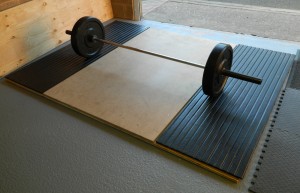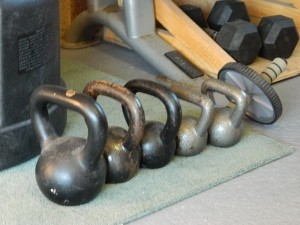Main Menu
Latest Blog Entry
User login
Strongman Training
How Hard is Strongman Training?
As part of a training programme, the use of strongman events is useful to create both a training effect and a fun, competitive atmosphere amongst your athletes. I like to do something once a month with rugby players, providing the playing schedule is not too heavy. Off season we may do something on a weekly basis.
Strongman training can be seen as a specific sporting event or as a sexy functional exercise that shows innovation and is used as a gimmic.
I prefer to look at the lifts from a sporting perspective and think how they can be applied in training. Too much resistance training is divided into either platform based variations of barbell lifts, periodised to death, or ridiculous exercises isolating tiny muscles in the hope of “firing them up” and never getting the athlete to engage in the athletic development process.
(These type of implements are cheap too, my gym has got a lot of them scattered around.)
Lifting awkward objects, which are lopsided, or move awkwardly has a big relevance to a lot of sporting activities including:
- field athletic events
- golf
- combat sports
- collision sports.
Research into strongman training
Popular amongst strength coaches, the effects haven’t really been studied until recently.
The researchers of this study have conducted other studies looking at more conventional exercises and how they help train the trunk.
Carrying exercises, either with one hand, or two hands require more hip abduction than is normally available, so the athletes use their obliques and Quadratus Lumborum to assist the movement. Therefore these activities as part of a programme could be useful.
Forget about “engaging the core”, just lifting the objects meant that the spinal load was large and was caused by co-contraction of the torso muscles- exactly what is needed in most sports that require getting hit.
Another study looked at the metabolic effects of pushing and pulling a 1960kg vehicle over 400m. The effects (not surprisingly) were that the athletes felt nauseous and dizzy at the end, with blood lactate levels of 15.6mmol/ L (31% higher than produced in a maximal treadmill test).
So, this type of training is very, very demanding, and will have a fatiguing effect on the athletes. Don’t think just because you can’t measure it as easily as sets, reps and load in the gym, that it doesn’t count as part of the overall training load!
Use it as part of the overall training programme – not the latest bandwaggon to jump on.
Further reading: Glenn Ross on Strongman training for rugby.
Client Testimonials
 Seb Baylis + Tom Baylis
Seb Baylis + Tom Baylis
"James Marshall is now managing my two sons' strength and conditioning training for a fourth consecutive year. From the very start, youngsters and parents alike have easily engaged with James' professional approach and personable manner. Now both semi-professional cyclists aged 20 and 18, between them they have achieved numerous successes in the National Junior Series, including two stage wins, a silver medal in the National Championships, and selection for team GB in the Junior World Series.
More



